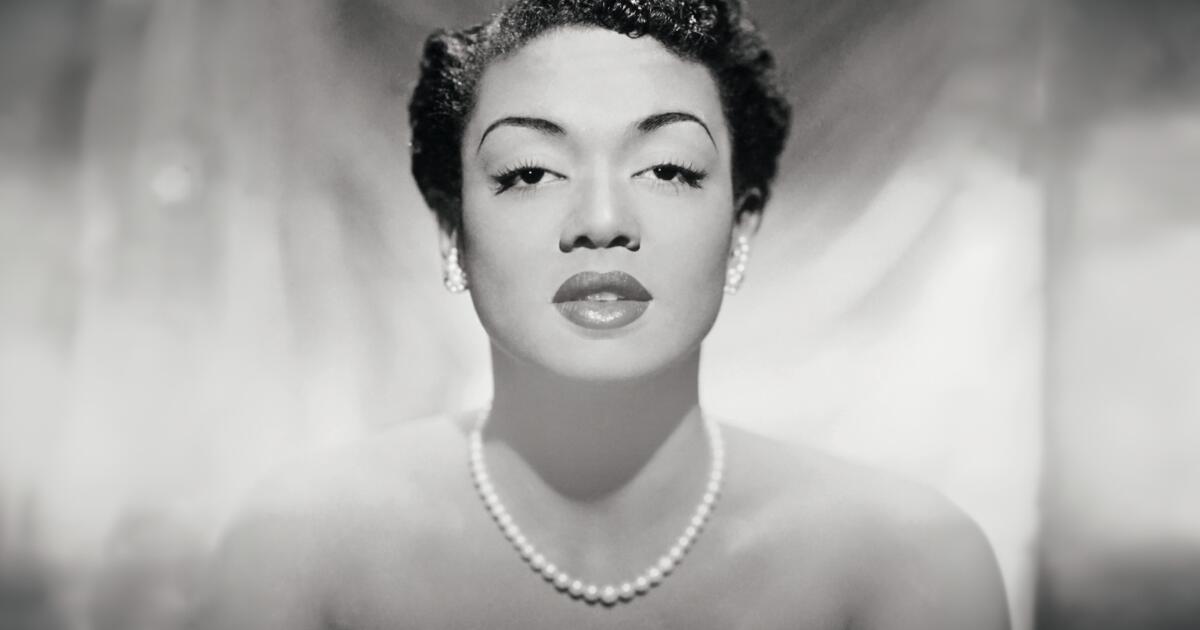It makes perfect sense that veteran Mexican singer Pepe Aguilar released the most thoughtful and ambitious album of his career during a tumultuous period in his life. Art has a capricious tendency to thrive amid conflict and uncertainty.
“It’s the album that best defines my personality,” Aguilar says over Zoom of “Que Llueva Tequila,” an elegant, mournful collection of Mexican love songs accented by deep, almost experimental rock ’n’ roll undertones. Released earlier this summer, it was met with critical acclaim, but numbers on streaming platforms have been lukewarm.
“This is the first time I’ve delved into elements of rock and psychedelia that don’t normally appear in mariachi music,” he explains. “I owed this record to myself and I’m happy with the final product. But I’m not naive. I knew that streaming services wouldn’t jump at the chance to add these songs to their playlists,” he adds with a hearty laugh, laced with a hint of cynicism.
At 56, Aguilar stands out as one of the most respected masters of contemporary Mexican music. Son of the icons of the golden era of the late 20th century, Antonio Aguilar, and actress Flor Silvestre, he is part of a dynasty of singers that now includes his daughter Angela20 years old, and his son Leonardo, 25. Pepe and his children recently appeared together in the Jaripeo Without Borders tour: a traditional mix between a concert and a horse show.
“Working with Pepe on his ‘MTV Unplugged’ was one of the most enriching moments of my career,” says acclaimed singer-songwriter Natalia Lafourcade. “From the first moment I was impressed not only by his incredible talent as an artist, but also by his deep humanity and sensitivity. Pepe is not only an icon of regional Mexican music, but also a bridge that unites different generations. I feel grateful to have been part of his musical history; his passion for life continues to inspire us all.”
In the 1990s, after an ill-fated foray into rock with the band Equs, Aguilar set his sights on Mexican music and made a name for himself as an unabashed innovator. On albums like the now-classic “Por una mujer bonita,” he broke new ground by introducing unusual instrumental combinations. As a producer, he based the songs on arrangements so precious and velvety that they sounded as if they were destined to be framed in a museum. Aguilar also became a major concert attraction across the Americas with a gentlemanly vocal style that harkened back to 20th-century Mexico: a heady mix of jubilant ranchera and hazy bolero pathos.
But everything changes in the fickle world of pop music. Last year, Aguilar was involved in a brief viral Twitter feud with rising star Nathanael Cano for his dislike of the new crude wave of corridos tumbados. His daughter Angela has been in the public eye due to her recent marriage to the controversial singer Christian NodalAnd after years in Los Angeles, the Aguilar family moved to Houston, in the state where he was born.
“It was a sudden change, but a necessary one,” he says. “We were a little tired of the cold energy of Los Angeles. We were craving something different. I never imagined I would feel so comfortable here. We are happy for now, but we may return to Los Angeles in the future.”
In many ways, “Que Llueva Tequila” is Aguilar’s emotional reaction to everything that has been happening around him.
“This is probably the seventh or eighth time I’ve completely reinvented myself,” he says. “It’s a new dawn; a new way of doing things.”
Much like the venerable classic-rock aura it draws on, “Que Llueva Tequila” demands a patient listen. “Corazón a Medio Día” begins with the assurance of a sweet accordion line, but there are some Pink Floyd-style electric guitars buried in the song’s seraphic finale. And the stadium-rock mood that kicks off “Hasta Que Me Duermo” turns downright symphonic when Aguilar belts out the massive chorus about obsessive heartbreak, a moment that can best be described as progressive ranchera. Some of the songs were written by longtime collaborator Enrique Guzmán Yáñez. Others are by Pablo Preciado, the singer-songwriter for the Mexican pop group Matisse.
“Maybe I’m a little vain, but I think we’ve stumbled upon a new sound,” he enthuses. “The music business is a game of making money and following what everyone else is doing, and a lot of experimental records never make it into the mainstream. But now that anything goes, now that you can put the most vulgar expressions imaginable into a song, why not see what happens with these new sonic possibilities?”
Clearly, Aguilar is aiming for the blatant irreverence of lying down corridoshis tales of sexual exploits and recreational drugs. He laughs when I confess that I enjoy the new, gritty sound of Mexican music.
“I don’t feel inclined to include profanity in my songs, or to sing praises to the caravans of drug traffickers that parade through the streets,” he says. “Nor do I see myself starring in a musical, because I don’t like musicals. This doesn’t mean I’m weird or openly critical. The good thing about all this artistic liberation is that Mexican artists are now part of the global panorama. Suddenly, the doors are wide open for all of us.”
Peripherally, Aguilar's children are also part of the new wave, at least generationally. As a father of adult children, he is wise enough to distance himself from the toxic labyrinth of tabloid flashbulbs and social media poison.
“We all come into this world to learn some lessons, and the curriculum is tailored to each individual,” she reflects. “We are just a small piece of a huge cosmic puzzle. At 56, I can tell you that my children are now adults, responsible for their choices and the consequences of those choices. Our job as parents is done: we become observers. Of course, you grieve for them, but you have to get rid of your own paradigm of how things are supposed to be. Accepting this has been difficult, but also liberating.”
These existential reflections may explain the diffuse and melancholic mood that permeates the songs of “Que Llueva Tequila,” a prism that adds poignancy to its singing.
“Music works as an outlet,” he says. “I don’t want to put myself in the role of victim — lazy — but I tend to focus on the injustice of life and the deep pain of it, and there’s definitely a lot of that at play, bro. Every artist has a mission, and mine is to sing about sadness. Someone has to do the dirty work.”












